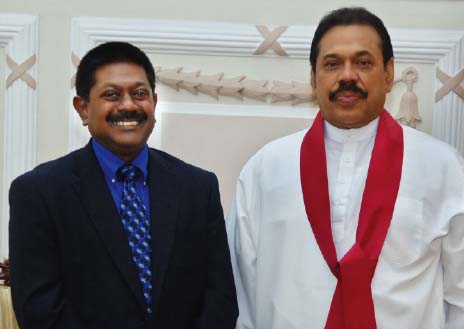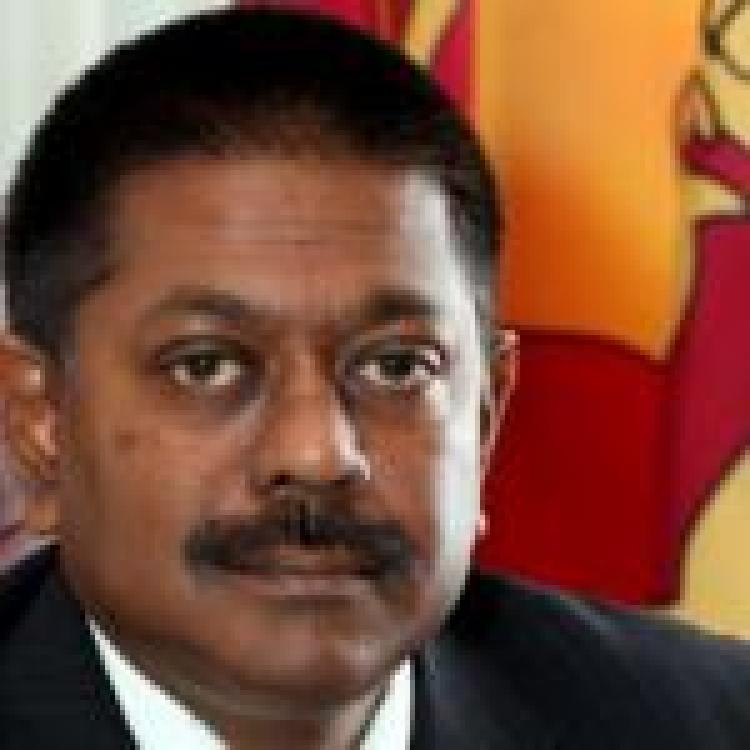A US court sentenced Sri Lanka’s former ambassador to Washington to a US$5,000 fine and two years probation last week, in a case that may have reverberations in Colombo and capitals around the world.
Jaliya Chitran Wickramasuriya, Colombo’s former ambassador to the United States, has pled guilty to diverting and attempting to embezzle US$332,027 from the government of Sri Lanka, as it purchased a new embassy building in Washington in 2013.
“Even though this was not millions of dollars, it represents a serious theft from the people, and by a person that they entrusted to represent their interests in the capital of the most powerful country in the world,” said Judge Tanya S. Chutkan. “What you have done is a serious betrayal.”
As Politico reports, the case is unusual and ruling significant, demonstrating the limits of diplomatic immunity.
Wickramasuriya, a close relative of the Rajapaksa's, served as the Sri Lankan ambassador to the United States and Mexico from 2008 to 2014. During his tenure and at the height of the armed conflict in 2009, he had accused the Committee to Protect Journalists (CPJ) of distorting the image of Sri Lanka and denied that there was any crisis of press freedom in the country. He later went on to add that "attacks on journalists may have been perpetrated by "terrorists" seeking to embarrass the government".
As reports of his fraud began to emerge, he was withdrawn from his post and recalled to Colombo. And after Mahinda Rajapaksa lost the presidential election in 2015, the new Maithrapala Sirisena led government reportedly worked with US Homeland Security Investigations agents to arrest Wickramasuriya in Colombo.
However, the former ambassador still held a US Green Card, and fled Sri Lanka for the United States.
From there, he claimed that he was prevented from leaving the country by the Department of Homeland Security, who stopped him boarding a flight and questioned him on war crimes committed by Sri Lankan troops during the island’s armed conflict. According to The Island, the former diplomat claimed “the US wanted him to cooperate on ongoing US investigations into alleged war crimes”.
In 2017, the Sri Lankan government reportedly agreed to waive Wickramasuriya’s diplomatic immunity and in 2018 a federal grand jury indicted him.
Politico reports on what happened next;
It’s not clear why U.S. prosecutors were so hot to trot on what was by then an old case involving a comparatively small dollar figure and money that had already been returned. At the State Department, officials typically don’t like this sort of prosecution, which other governments could theoretically deploy against Americans. On the other hand, for prosecutors, a highly connected envoy with family ties to a corruption-plagued government could theoretically give up information on fatter targets of more pressing interest to the feds.
At any rate, the diplomatic waiver soon turned into a diplomatic headache. In 2019, after another election in Sri Lanka, the Rajapaksa dynasty returned to power in a landslide. Another brother, Gotabaya, became president. In a series of diplomatic notes to the American embassy, his government asserted that the immunity hadn’t been properly waived and should be reinstated. In court in Washington, the defense team introduced material suggesting, plausibly, that the waiver had been part of a broader pattern by the previous government to punish political rivals.
They got nowhere. The State Department maintained that once you’ve given up diplomatic immunity, you can’t just get it back.
And in federal court, prosecutors rolled out an argument that ought to put fear into would-be diplomatic crooks everywhere: The waiver didn’t matter, they said. Under international conventions, a sitting diplomat can’t be prosecuted, period, whether he’s accused of armed robbery, blackmail or jaywalking. But in the event the diplomat returns to the scene of the crime as a tourist a few years later, it turns out that the locals can nab him retroactively for anything that wasn’t formally part of the job. Graft, prosecutors archly noted, was not on an ambassador’s list of duties: “The Defendant’s official responsibilities regarding the purchase of a new embassy building did not require, and were not furthered in any way by, misstating the purchase price of the building and the fraudulent activity to arrange transfer of the excess amounts for his own benefit.”
Read the full text of the Politico piece here.


